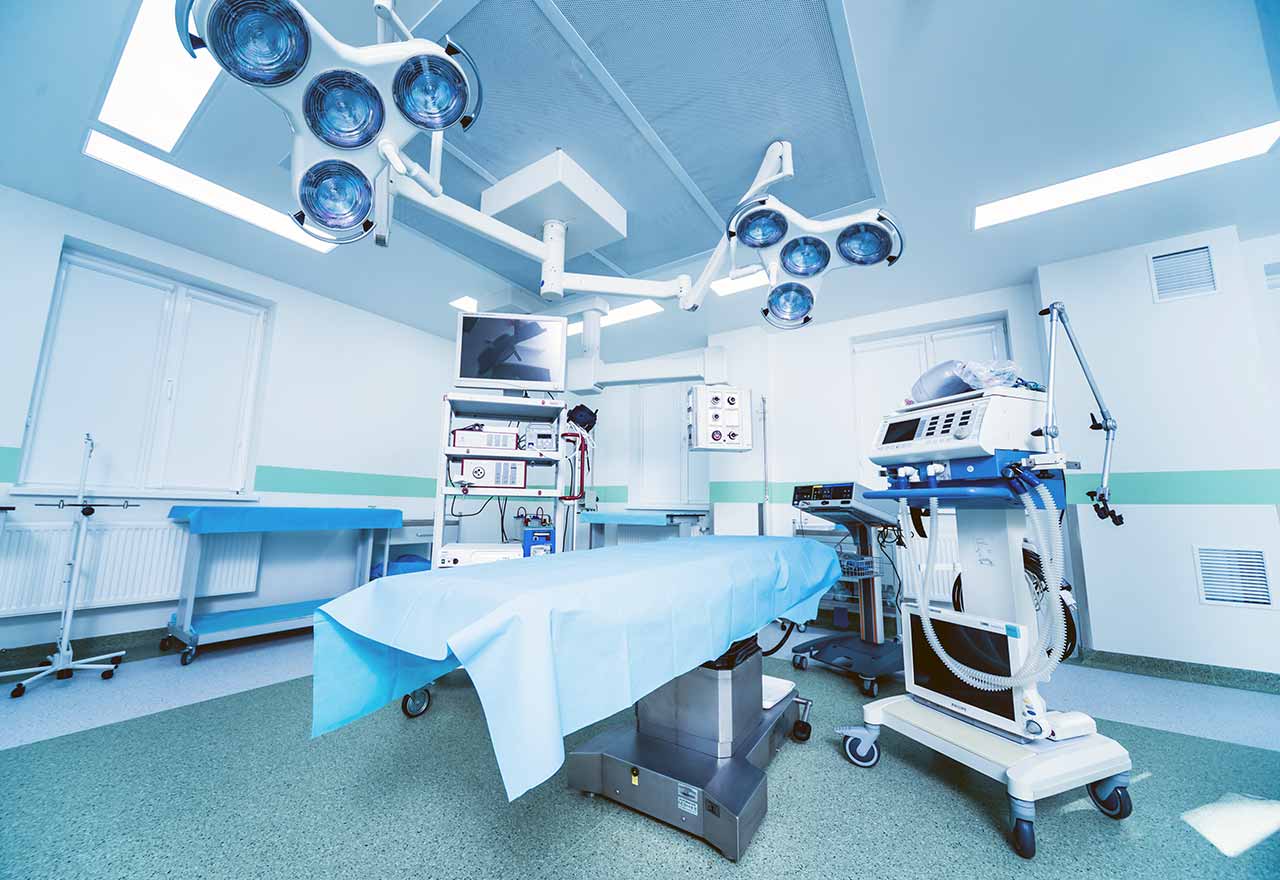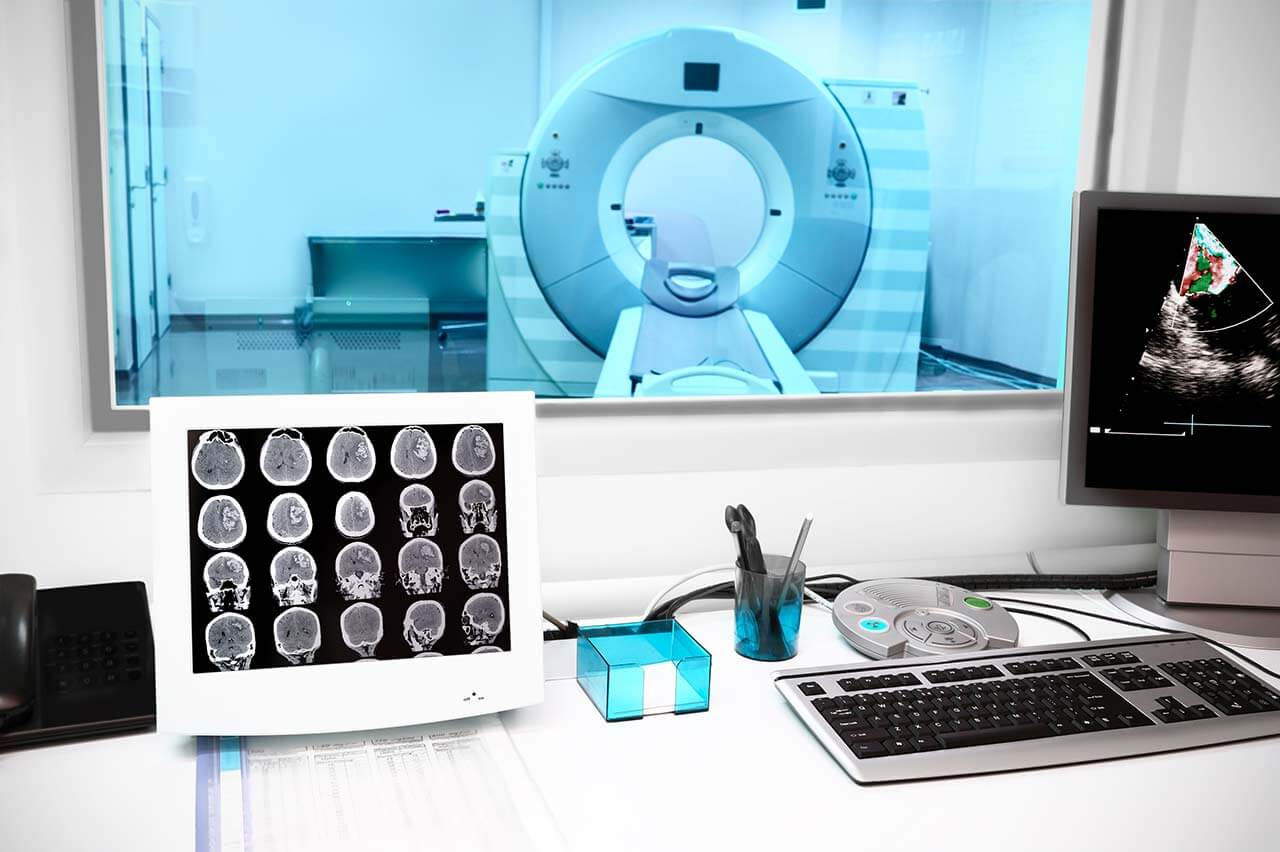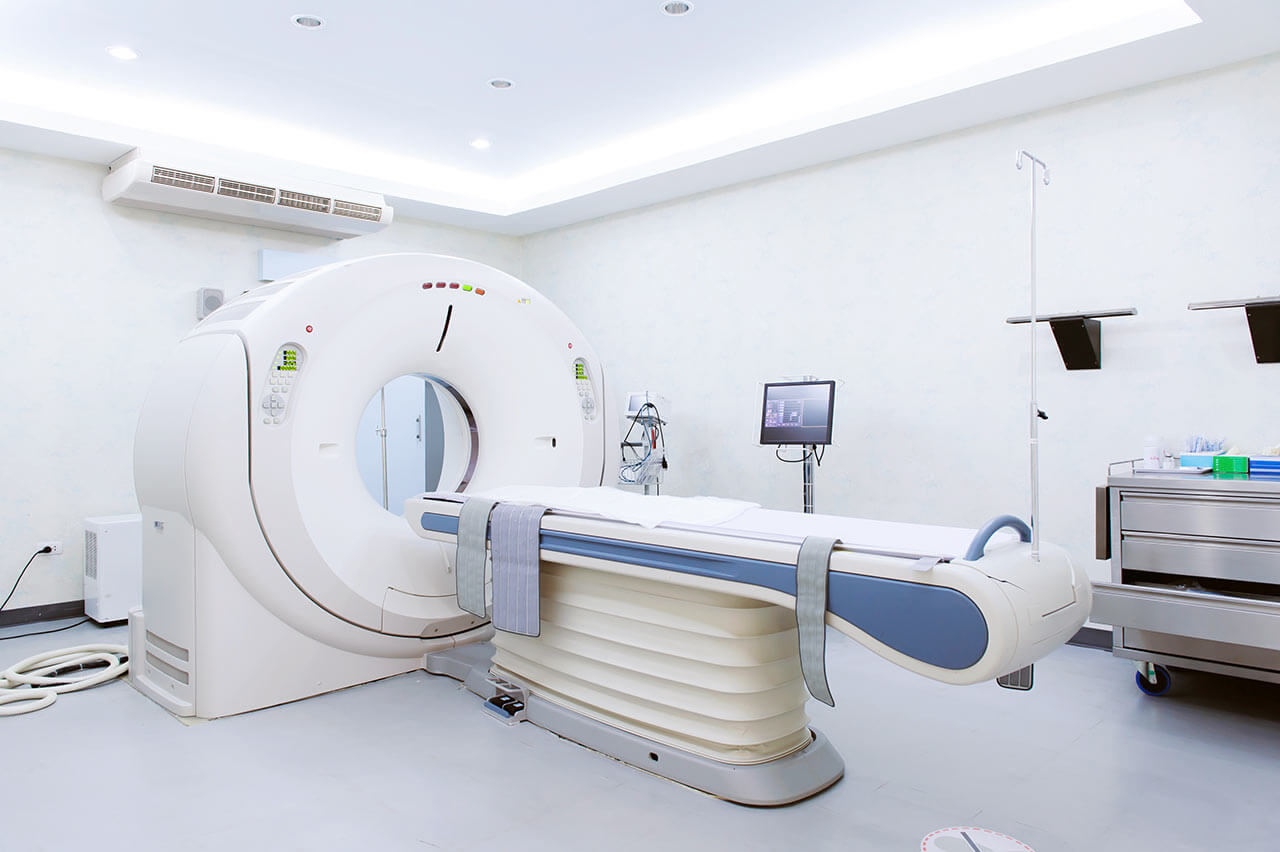
The program includes:
- Initial presentation in the clinic
- clinical history taking
- review of medical records
- physical examination
- laboratory tests:
- complete blood count
- biochemical blood test
- inflammation markers (CRP, ESR)
- blood coagulation analysis (aPTT, PT, INR)
- ultrasound of the abdomen
- gastroscopy
- colonoscopy
- CT/MRI of the abdomen(if clinically indicated, additional cost is 650/1200€)
- nursing services
- consultation of related specialists
- treatment by chief physician and all leading experts
- explanation of individual treatment plan
Required documents
- Medical records
- Colonoscopy (if available)
Service
You may also book:
 BookingHealth Price from:
BookingHealth Price from:
About the department
The Department of Gastroenterology, Hepatology and Infectology at the University Hospital Hamburg-Eppendorf provides a full range of diagnostic and therapeutic services in its specialties. The team of doctors of the medical facility treats diseases of the stomach, esophagus, intestines, pancreas, liver, gallbladder, and biliary tract. Of special interest is the treatment of oncological diseases of the gastrointestinal tract and liver. Patients with acute and chronic infectious diseases, including tropical infections, can also receive qualified medical care here. The specialists of the department prefer comprehensive medical care, therefore in complex clinical cases general and abdominal surgeons, hepatopancreatobiliary surgeons, transplant surgeons, oncologists, radiotherapists, radiologists, and other physicians of related specialties are involved in the therapeutic process. Treatment includes personalized drug and diet therapy, endoscopic procedures, and minilaparoscopy. It is worth noting that the department is the first medical institution in Northern Germany to perform liver elastography using the innovative FibroScan method. The medical team of the department ensures that each patient receives the most effective and at the same time sparing treatment in accordance with individual needs. The Head Physician of the department is Prof. Dr. med. Ansgar Lohse.
The treatment of chronic inflammatory bowel diseases (Crohn's disease and ulcerative colitis) is one of the most important areas of daily work for gastroenterologists in the department. Crohn's disease can affect all organs of the gastrointestinal tract, while ulcerative colitis is an inflammatory process limited to the colon. The first-line treatment for inflammatory bowel disease is drug therapy in accordance with international clinical recommendations and diet therapy with the exclusion from the diet of fatty meats, poultry and fish, smoked foods, fatty and hot sauces, sweets, etc. In some cases, an endoscopic procedure may be required, such as bougienage for stenosis caused by intestinal inflammation.
The doctors at the medical facility specialize in the treatment of acute and chronic pancreatitis, an inflammation of the pancreas. Acute pancreatitis is a potentially life-threatening disease, so its treatment is carried out in the hospital under close medical supervision. The patient is prescribed symptomatic treatment, a strict diet, and infusion therapy. If pancreatitis is complicated by gallstone disease, endoscopic retrograde cholangiopancreatography may be required. Chronic pancreatitis is a long-term inflammatory disease characterized by pathological changes in the structure of the organ and dysfunction. In 80% of cases, chronic pancreatitis develops as a result of alcohol abuse. Chronic pancreatitis is treated with drug therapy and a diet high in protein, limiting fatty and spicy foods, sour and carbonated drinks.
The department treats a wide range of benign liver and gallbladder diseases, such as autoimmune hepatitis, hepatitis A, B, C, and E, primary sclerosing cholangitis, primary biliary cholangitis, alcoholic and non-alcoholic steatohepatitis, and others. In collaboration with surgeons, oncologists, radiation therapists, and interventional radiologists, the department's hepatologists offer all modern methods for the treatment of malignant liver tumors, with special emphasis on the treatment of hepatocellular carcinoma and cholangiocarcinoma. Hepatocellular carcinoma (HCC) is the most common type of liver cancer. The treatment tactics for this oncopathology depend on its stage: in the early stages, the tumor can be removed with microwave ablation or radiofrequency ablation, and in more complex clinical cases, surgical resection of the malignancy is required. Thanks to the collaboration of hepatologists with radiation therapists and radiologists, the department offers treatment with innovative methods of transarterial chemoembolization (TACE) and/or selective internal radiation therapy (SIRT). The department's hepatologists are also responsible for the medical care of patients before and after liver transplantation.
The department's range of medical services includes the following options:
- Diagnostics and treatment of chronic inflammatory bowel disease
- Diagnostics and treatment of Crohn's disease
- Diagnostics and treatment of ulcerative colitis
- Diagnostics and treatment of pancreatic diseases
- Diagnostics and treatment of acute and chronic pancreatitis
- Diagnostics and treatment of neuroendocrine tumors
- Diagnostics and treatment of liver diseases
- Diagnostics and treatment of benign liver diseases
- Diagnostics and treatment of autoimmune hepatitis
- Diagnostics and treatment of hepatitis A, B, C, and E
- Diagnostics and treatment of primary sclerosing cholangitis
- Diagnostics and treatment of primary biliary cholangitis
- Diagnostics and treatment of alcoholic and non-alcoholic steatohepatitis
- Diagnostics and treatment of cirrhosis
- Diagnostics and treatment of portal hypertension
- Diagnostics and treatment of malignant liver diseases
- Diagnostics and treatment of hepatocellular carcinoma
- Diagnostics and treatment of cholangiocarcinoma
- Diagnostics and treatment of benign liver diseases
- Diagnostics and treatment of infectious diseases
- Diagnostics and treatment of schistosomiasis
- Diagnostics and treatment of familial Mediterranean fever
- Diagnostics and treatment of other gastroenterological, hepatological, and infectious diseases
Curriculum vitae
Higher Education
- 10.1978 - 08.1981 Medical and philosophy studies, Georg August University of Goettingen.
- 09.1981 - 12.1982 Scholarship from the German Academic Exchange Service (DAAD), Royal Free Hospital School of Medicine, London, UK.
- 01.1983 - 08.1983 Continued medical studies, Georg August University of Goettingen.
- 1983 Part 1 of a one-year practical training in Pediatrics, University College London Hospital, London, UK.
- 1984 Part 2 of a one-year practical training in Internal Medicine, Harvard Medical School, Boston, USA.
- 1984 Part 3 of a one-year practical training in Surgery, St. Juergenstrasse Hospital, Bremen, Germany.
- 11.1984 Admission to medical practice.
- 02.1987 Thesis defense. Subject: "Vasoactive intestinal peptide in colon biopsy in Crohn's disease and ulcerative colitis".
Clinical Training and Professional Career
- 1985 - 1986 Internship, Center for Internal Medicine, University Hospital Marburg.
- 1986 - 1987 Research Associate, Department of Internal Medicine I, University Hospital Mainz.
- 1987 - 1989 Research Internship in Prof. Cohen Laboratory, Department of Cell Biology, Weizmann Institute of Science, Rehovot, Israel.
- 1989 - 1994 Research Associate, Department of Internal Medicine I, University Hospital Mainz.
- 1993 Professional certification in Internal Medicine.
- 1994 Additional qualification in Gastroenterology.
- 1994 Habilitation and Venia legendi in Internal Medicine.
- 1994 - 2000 Senior Physician, Department of Internal Medicine I, University Hospital Mainz.
- 1996 - 2004 Associate Professor (C2).
- 1998 Theoretical foundations of the specialty in laboratory research in internal medicine.
- 2000 Extraordinary Professorship.
- 2001 Optional advanced training in Special Internal Intensive Care.
- 2001 - 2004 Managing Senior Physician, Department of Internal Medicine I, University Hospital Mainz.
- Since 01.2005 Head Physician, Department of Gastroenterology, Hepatology and Infectology, University Hospital Hamburg-Eppendorf.
- 2006 Additional qualification in Infectology.
- Since 2007 Medical Director, Center for Internal Medicine, University Hospital Hamburg-Eppendorf.
- Since 2008 Member of the Hamburg Academy of Sciences.
- 05.2002 Visiting Professor, Yuan Clinic, Beijing Medical School, China.
Scholarships, Awards, and Honors
- 1976 - 1978 Scholarship, United World College of the Atlantic, German Academic Scholarship Foundation.
- 1980 - 1984 Scholarship, Evangelischen Studienwerkes Villigst.
- 09.1981 - 12.1982 Scholarship, German Academic Exchange Service (DAAD), University of London.
- 1984 Study Abroad Scholarship, Carl Duisberg Foundation, Harvard Medical School, Boston, USA.
- 04.1987 - 03.1989 Study Fellowship, German Research Foundation (DFG).
- 09.1989 International Herbert Herxheimer Scientific Award, European Academy of Allergology and Clinical Immunology.
- 10.1994 Young Clinician Award, World Congress of Gastroenterology, Los Angeles, USA.
- 05.1995 Boehringer Ingelheim Prize.
- 09.1997 Karl Anton Ewald Prize, German Society for Digestive and Metabolic Diseases (DGVS).
- 09.1998 1st Poster Prize and Presidential Poster Prize, 53rd Annual Meeting of the German Society for Digestive and Metabolic Diseases (DGVS).
- 12.2000 Innovation Prize of the Federal State of Rhineland-Palatinate.
Memberships in Professional Societies
- North German Society of Gastroenterology (NDGG).
- German Society of Internal Medicine (DGIM).
- German Society for Immunology (DGfI).
- German Working Group for the Study of the Liver (GASL).
- German Society for Digestive and Metabolic Diseases (DGVS),
- German Cancer Society (DKG).
- European Association for the Study of the Liver (EASL).
- European Society for Organ Transplantation (ESOT).
- European Liver and Intestine Transplant Association (ELITA).
- American Association for the Study of the Liver (AASLD).
Photo of the doctor: (c) Universitätsklinikum Hamburg-Eppendorf (UKE)
About hospital
According to the Focus magazine, the University Hospital Hamburg-Eppendorf is one of the top ten hospitals in Germany!
Since its foundation in 1889, the hospital has taken a leading position in the European medical arena, which it still holds today. A highly competent medical team of more than 15,300 employees takes care of the health of patients. Approximately 2,900 of them are physicians and researchers, and more than 3,400 work as nurses and therapists. The hospital has 1,738 beds for inpatient treatment, and many diagnostic and therapeutic services are provided on an outpatient basis. A solid foundation for successful clinical practice in the medical complex is formed by a combination of research achievements with state-of-the-art equipment and the highest professionalism of doctors. In addition, the hospital has a modern and extremely comfortable infrastructure. The most important value for every employee of the University Hospital Hamburg-Eppendorf is the health and well-being of every patient.
The medical facility was the first university hospital in Europe to implement an electronic system for storing patient medical reports. As a result, all diagnostic and treatment protocols are stored electronically. In 2011, the hospital was certified as the first fully digital hospital in Europe.
The hospital represents all areas of modern medicine. The doctors of the healthcare facility have a wealth of theoretical knowledge and vast clinical experience, which allows them to easily cope with the treatment of both common and extremely rare, complex clinical cases. About 550,000 patients are treated here each year, over 450,000 of whom receive outpatient medical care.
An important part of the work of the University Hospital Hamburg-Eppendorf is research activities aimed at developing innovative diagnostic and treatment methods. The main areas of research of the hospital include neurobiology, oncology, cardiovascular research, and research on infectious and inflammatory diseases. Special attention is also given to research in molecular imaging and skeletal biology.
The hospital is distinguished by its first-class level of medical care, which is confirmed by numerous quality certificates of European and international standards: DIN EN IS0 9001 certificate, certificates of the German Cancer Society (DKG) in the treatment of breast cancer, colon cancer, gynecological cancer, prostate cancer, and other oncological diseases, certificate of the German Cardiac Society (DGK) in the treatment of acute coronary syndrome, certificate of the German Spine Society (DWG), and others.
Photo: (с) depositphotos
Accommodation in hospital
Patients rooms
The patients of the University Hospital Hamburg-Eppendorf stay in comfortable single and double bright rooms with a modern design. Each patient room has an ensuite bathroom with a shower and a toilet. The standard patient room furnishings include an automatically adjustable bed with an orthopedic mattress, a bedside table, a wardrobe, a table and chairs for receiving visitors, a telephone, a radio, and a TV. Wi-Fi access is available in patient rooms and throughout the hospital.
If desired, patients can stay in single enhanced-comfort rooms. These rooms are more spacious and are equipped with upholstered furniture, a safe, and a mini-fridge.
Meals and Menus
The hospital offers three meals a day: breakfast, lunch, and dinner. Breakfast and dinner are served in the form of buffets, and for lunch you can choose from several set menus – in total, more than 20 dishes are served for lunch, including vegetarian ones.
If, for some reason, you cannot eat all of the foods, you will be offered an individual menu. Please inform the medical staff about your dietary preferences prior to the treatment.
Further details
Standard rooms include:
![]() Toilet
Toilet
![]() Shower
Shower
![]() Wi-Fi
Wi-Fi
![]() TV
TV
Religion
Religious services are available upon request.
Accompanying person
During the inpatient program, an accompanying person may stay with you in a patient room or hotel of your choice.
Hospital accommodation
During the outpatient program, you may stay in a hotel at the hospital.
Hotel
During the outpatient program, you may stay in a hotel of your choice. Managers will help you choose the most suitable options.
The hospital offers a full range of laboratory tests (general, hormonal, tests for infections, antibodies, tumor markers, etc.), genetic tests, various modifications of ultrasound scans, CT scans, MRI and PET / CT, angiography, myelography, biopsy and other examinations. Treatment with medications, endoscopic and robotic operations, stereotaxic interventions is carried out here, modern types of radiation therapy are also used. The hospital offers patients all the necessary therapeutic techniques.
- Coiling and clipping of aneurysms of different localizations
- Transjugular intrahepatic portosystemic shunting in patients with portal hypertension
- Minimally invasive surgeries (da Vinci)
- Removal and reconstruction of mammary glands
- Hyperthermic intraperitoneal chemotherapy (HIPEC)
These are arteriovenous malformations and angiomas, vascular aneurysms, pathologies of the mammary glands, pelvic organ prolapse, urinary incontinence, malignant tumors of various localizations (area of special attention is treatment of intestinal cancer), pathologies of liver and pancreas, cataracts and rare ophthalmic pathologies (aphakia, aniridia ), infertility and other diseases.
- Interventional neuroradiology
- Mammology
- Oncology
- Gastroenterology
- Surgery
Over 2,900 highly qualified physicians and researchers work at the hospital.





